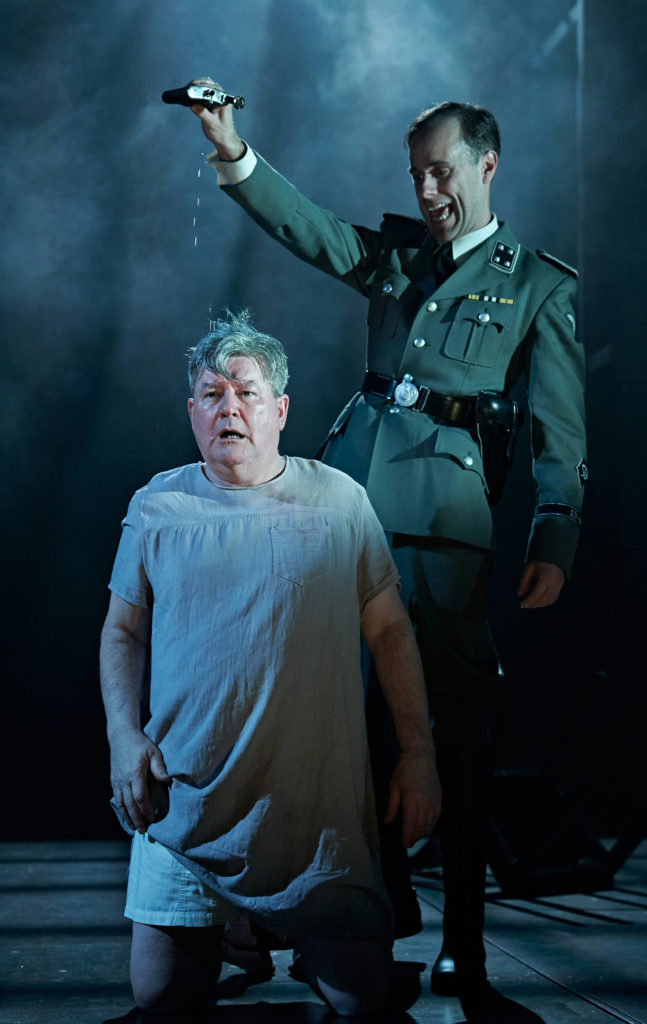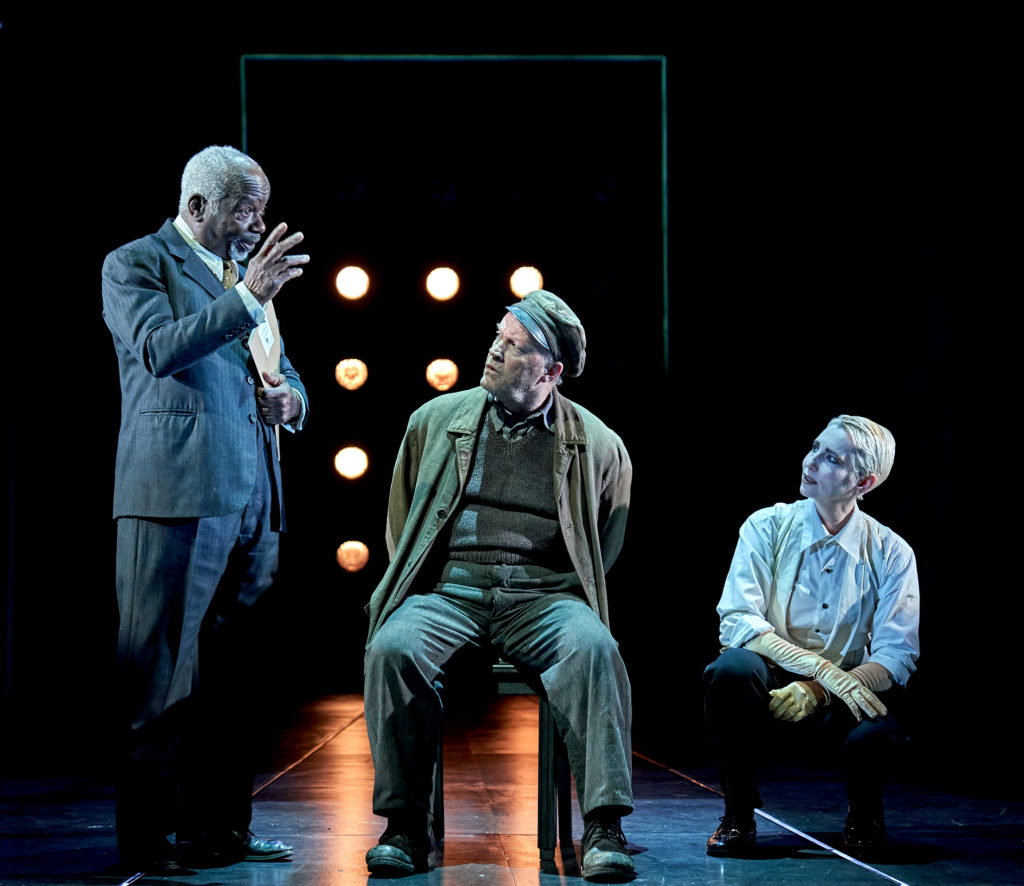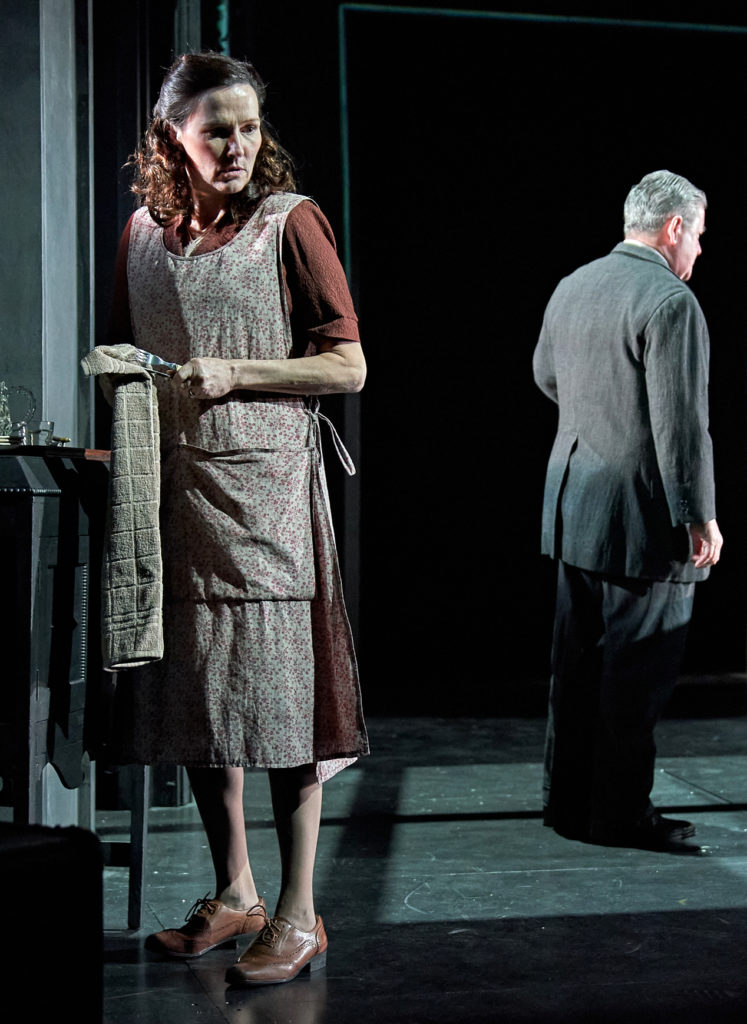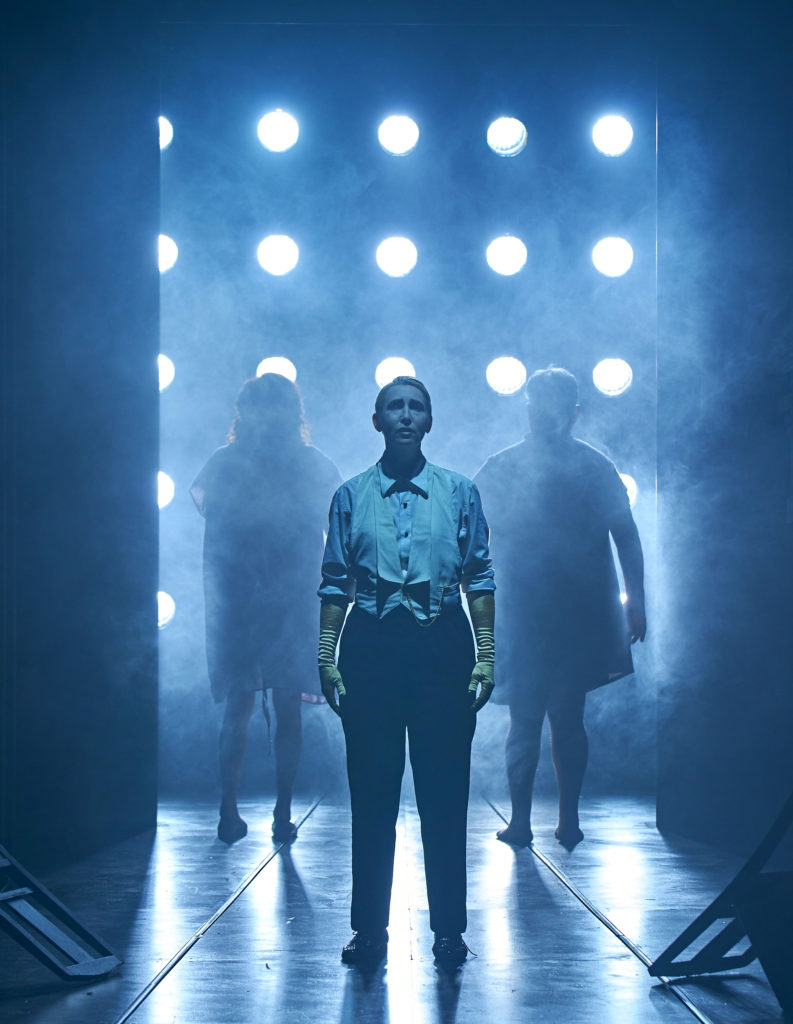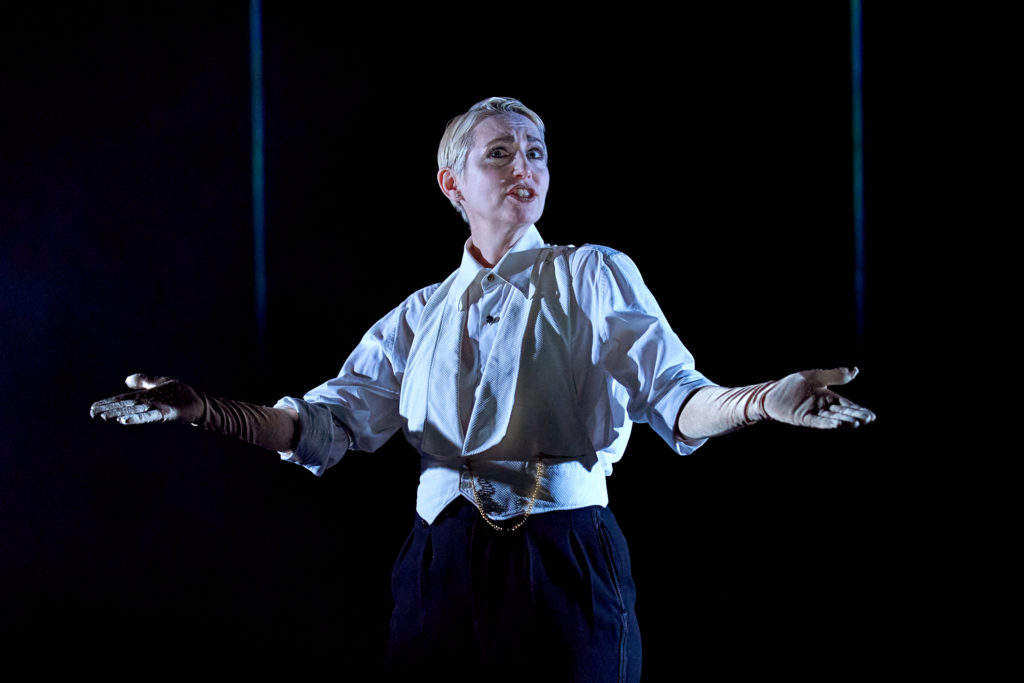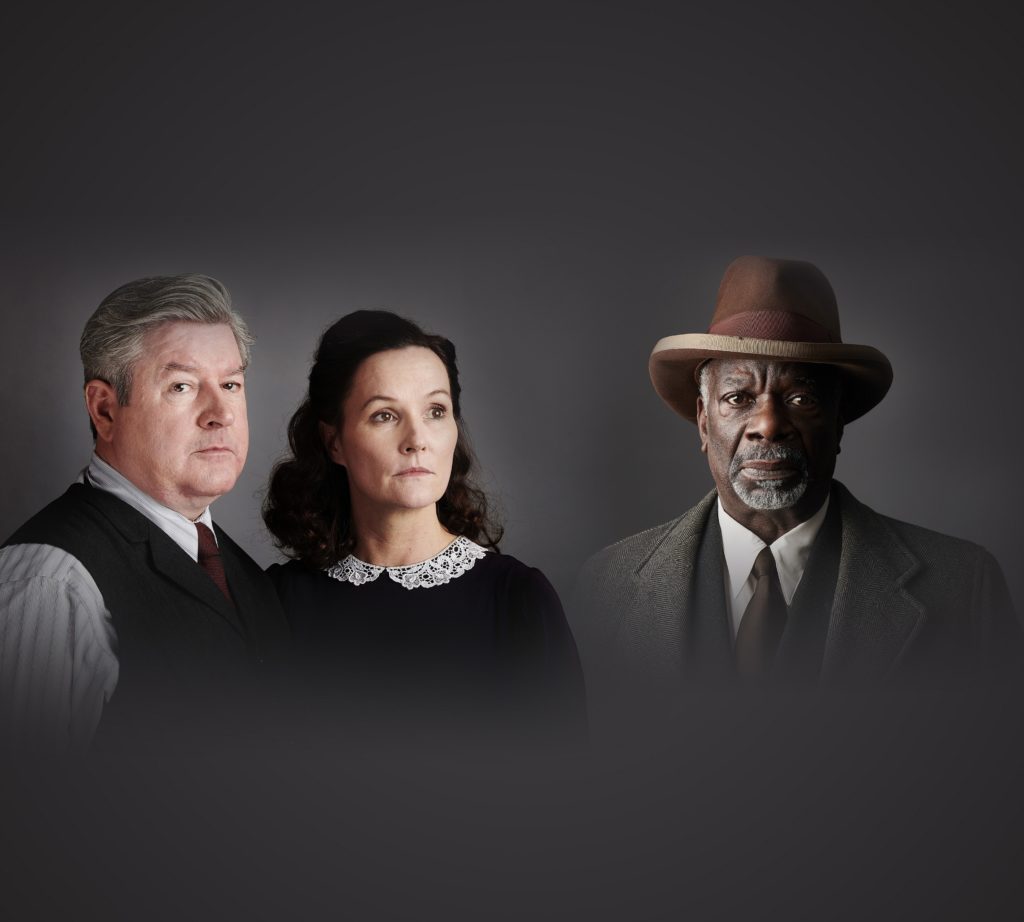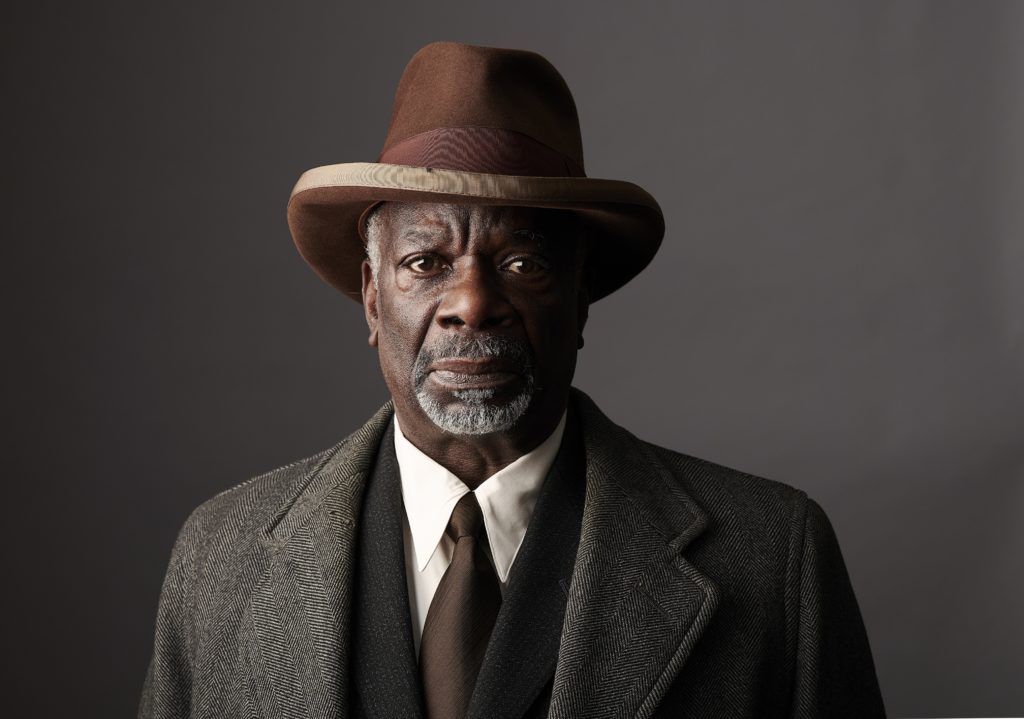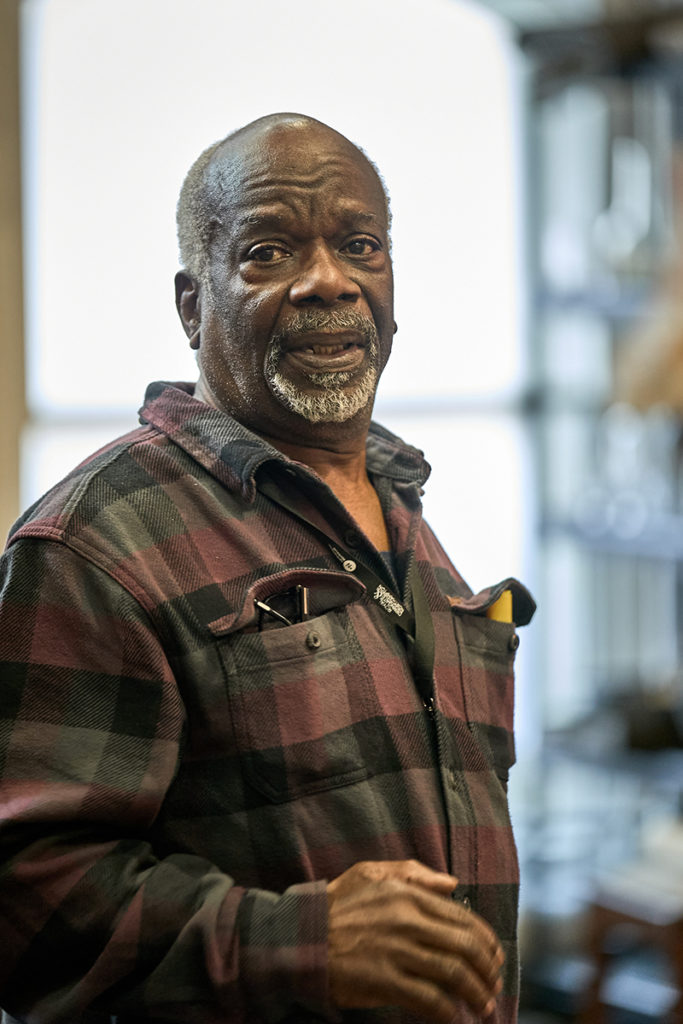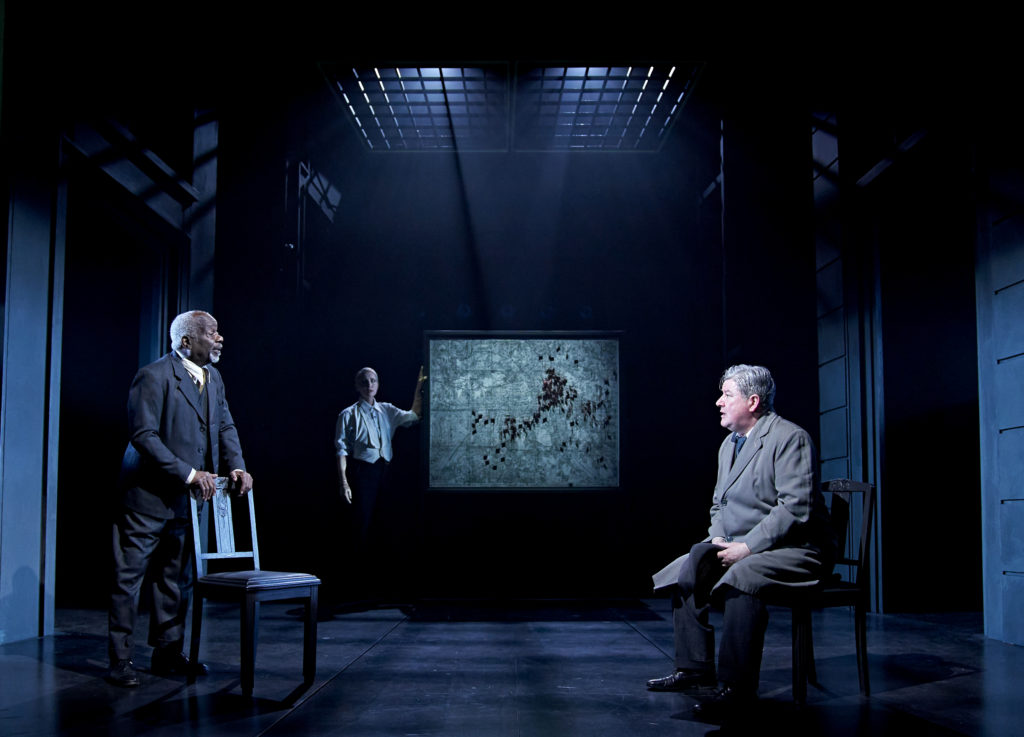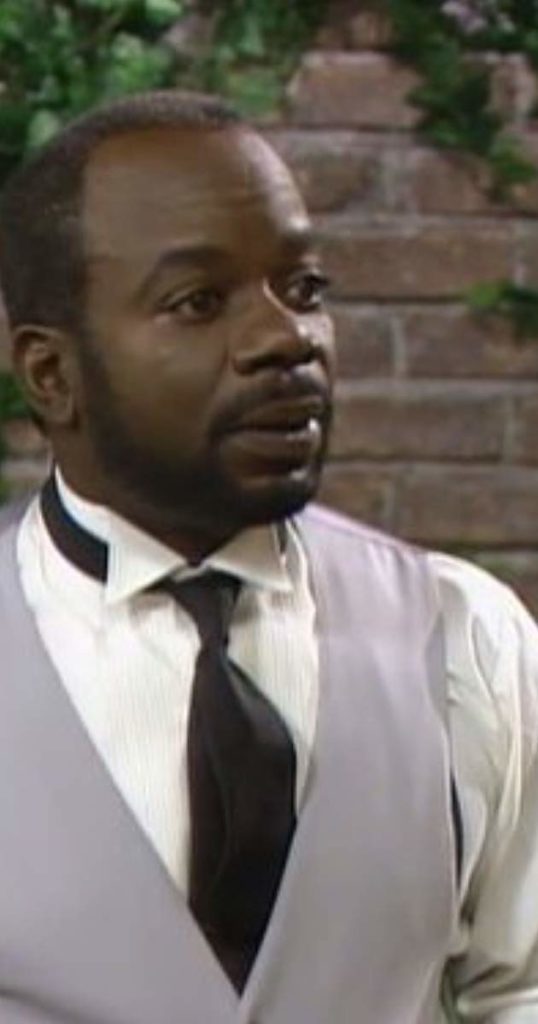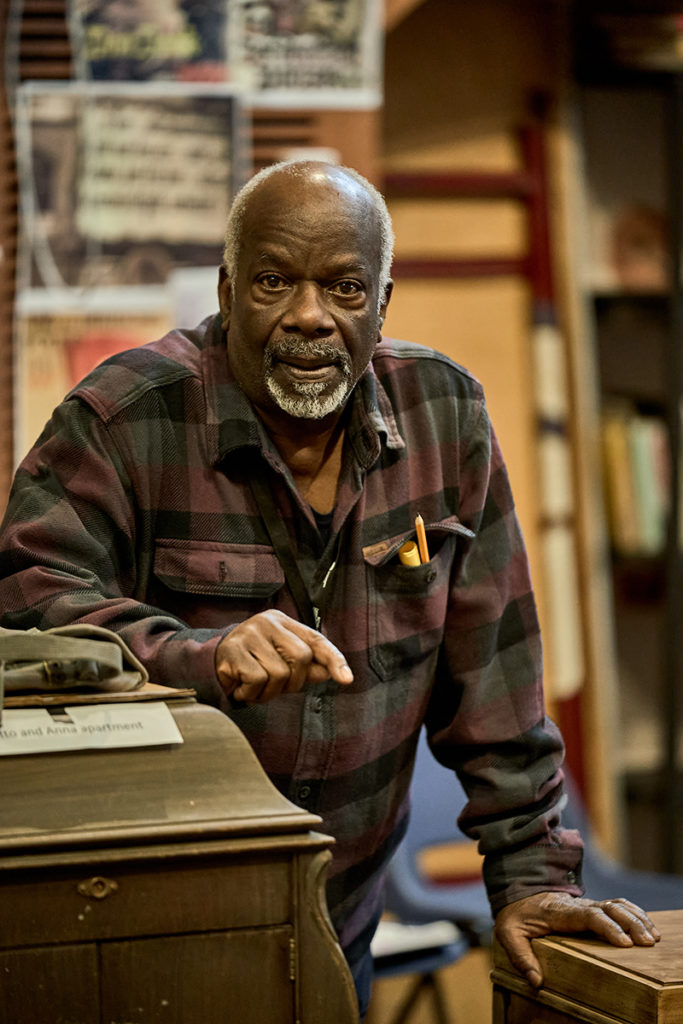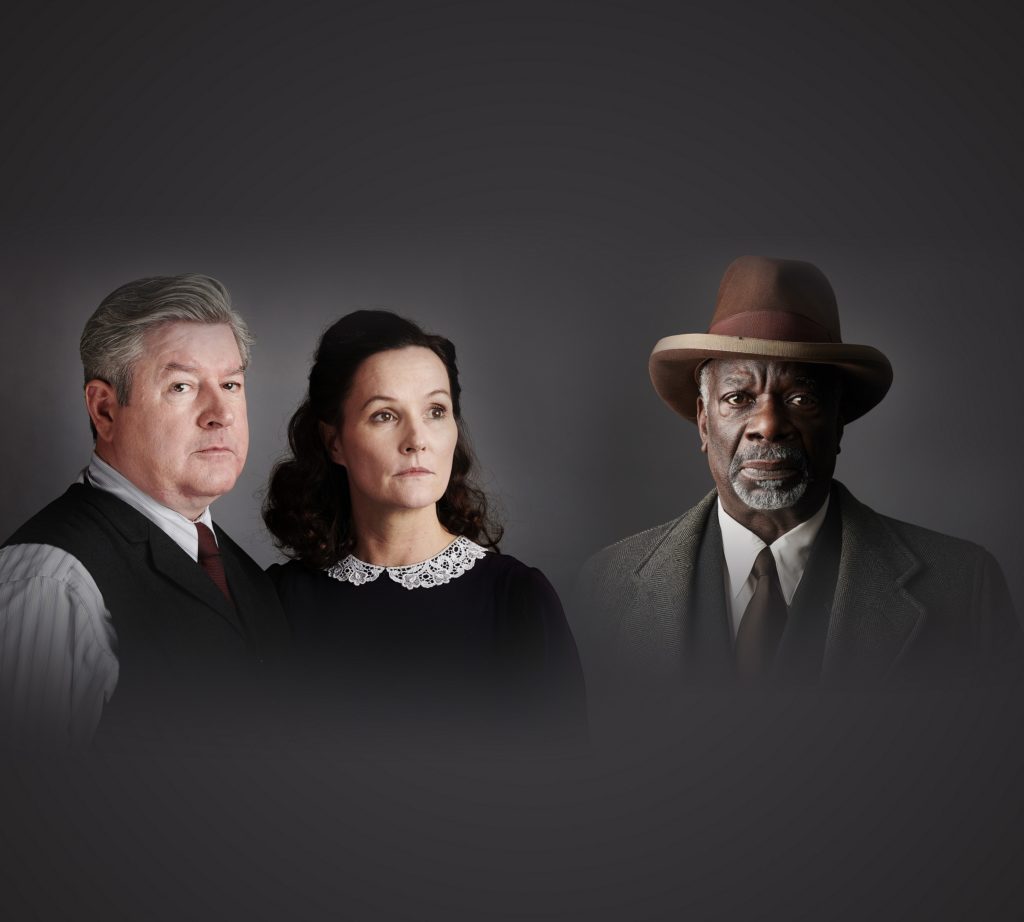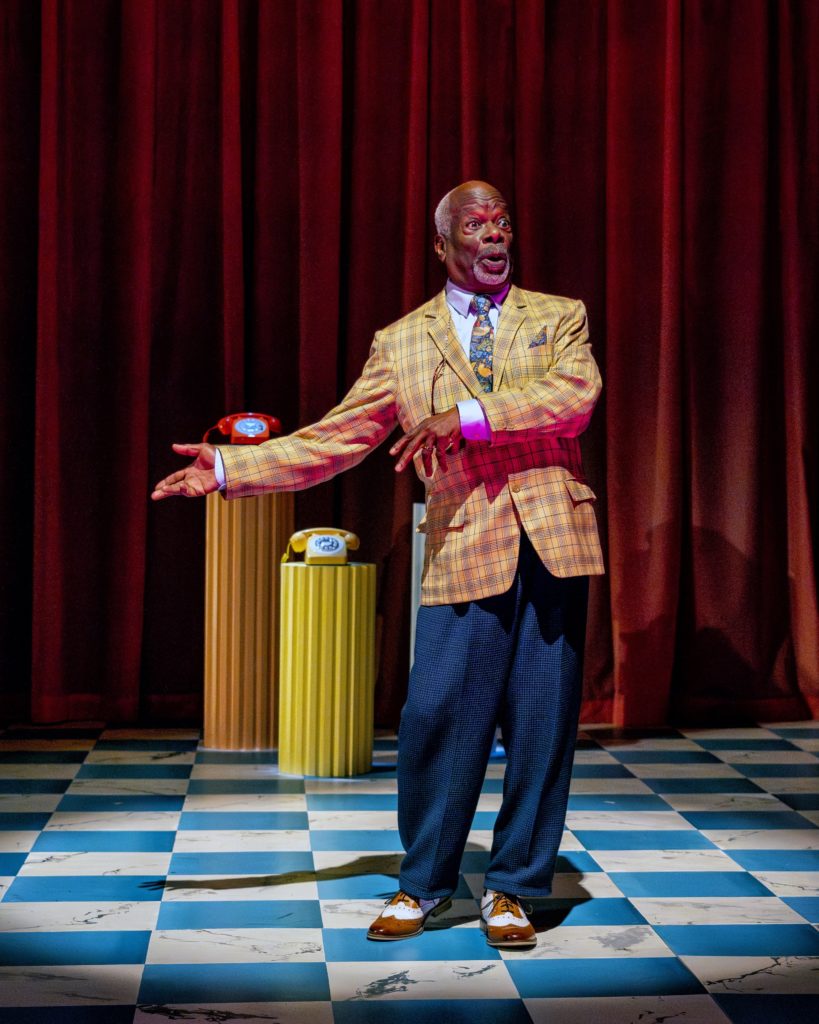
THE last time Joseph Marcell played York Theatre Royal, the March 2020 visit of Alone In Britain was stopped mid-run by the imposition of Covid restrictions.
Next week, he returns in Tilted Wig’s production of Richard Brinsley Sheridan’s comedy of manners The School For Scandal in the lead role of Sir Peter Teazle, who believes his young wife is sleeping with someone else. Not true, but she starts to think that if her husband believes it, she should give it a go. After all, if you are going to cause a scandal, you may as well enjoy it.
Now 75, Saint Lucia-born actor and comedian Marcell is best known for his NBC sitcom role as Geoffrey, the snooty butler, in The Fresh Prince Of Bel-Air from September 1990 to May 1996.
His other TV credits include Mammoth and I Hate You for the BBC and this year he is to appear in Candice Carty-William’s Queenie on Channel 4.
His prolific stage credits include the Young Vic’s Hamlet with Cush Jumbo; Kathy Burke’s Lady Windermere’s Fan; extensive work with Shakespeare’s Globe, such as the titular role in Bill Buckhurst’s King Lear and Derek Walcott’s Omeros, as well as seasons at the Royal Shakespeare Company.
He is taking to the road in Seán Aydon’s staging of The School For Scandal after starring in Chiwetel Ejiofor’s debut feature film, The Boy Who Harnessed The Wind.
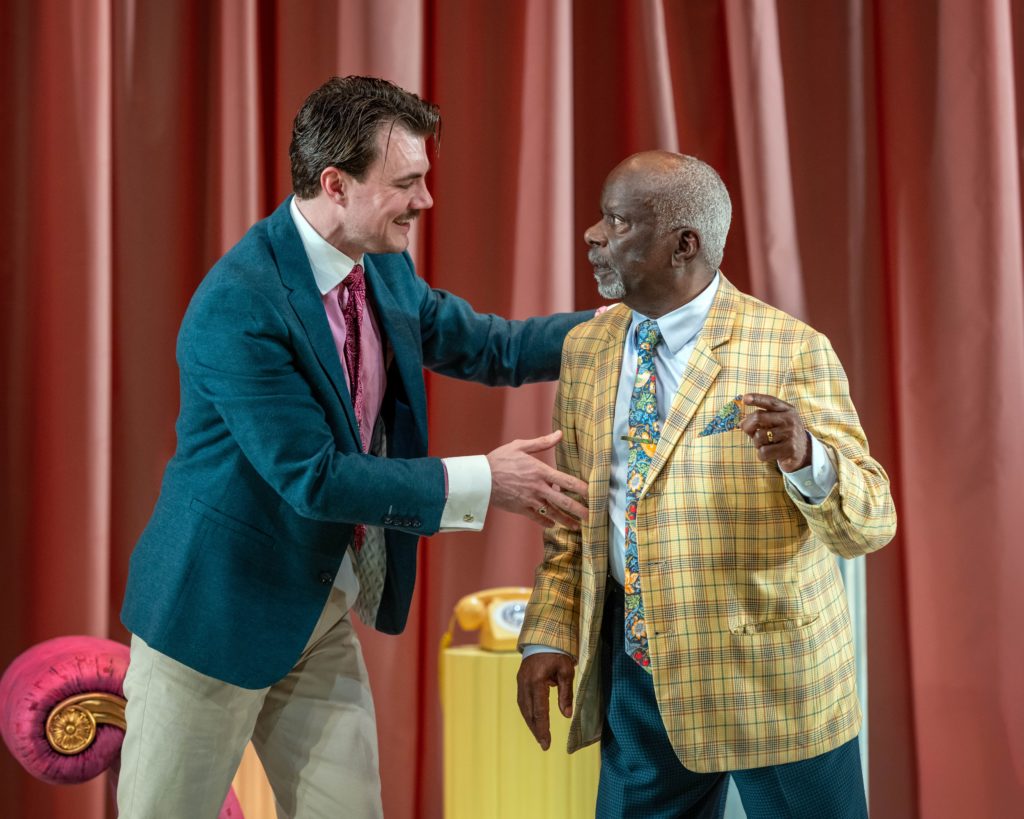
Here he discusses his latest stage role; The Fresh Prince Of Bel-Air; Sir Patrick Stewart; leaving electrical engineering for theatre; Saint Lucia and Queenie.
How does Sir Peter Teazle fit into the plot of The School For Scandal?
“Sir Peter is an aristocratic, wealthy and well-respected lord. He decided to marry. A country girl was chosen after a fairly long courtship. The difference in their ages and outlook has become a constant issue.
“Lady Teazle has become a full member of the WITS, a set of gossip mongers. Sir Peter is at his wits’ end. This school for scandal is the bane of his life and the cause of the endless bickering. However, he loves and cares for Lady Teazle.
Would you agree with Sheridan’s 1777 play being called “one of the greatest comedies ever written”?
“Yes, I would agree. The language, settings, characters and themes are amusing. And at the time of the play’s first production that aspect of comedy had not been enjoyed by a British audience.”
What differentiates Tilted Wig’s staging of The School For Scandal from past productions?
“We are set in the 1950s. Although we are not in wigs and frock coats, the sentiment of those times as best as we can imagine is fully respected. The characters are of a time gone by and we are totally respectful to the language, because without that there is no play The School For Scandal.”
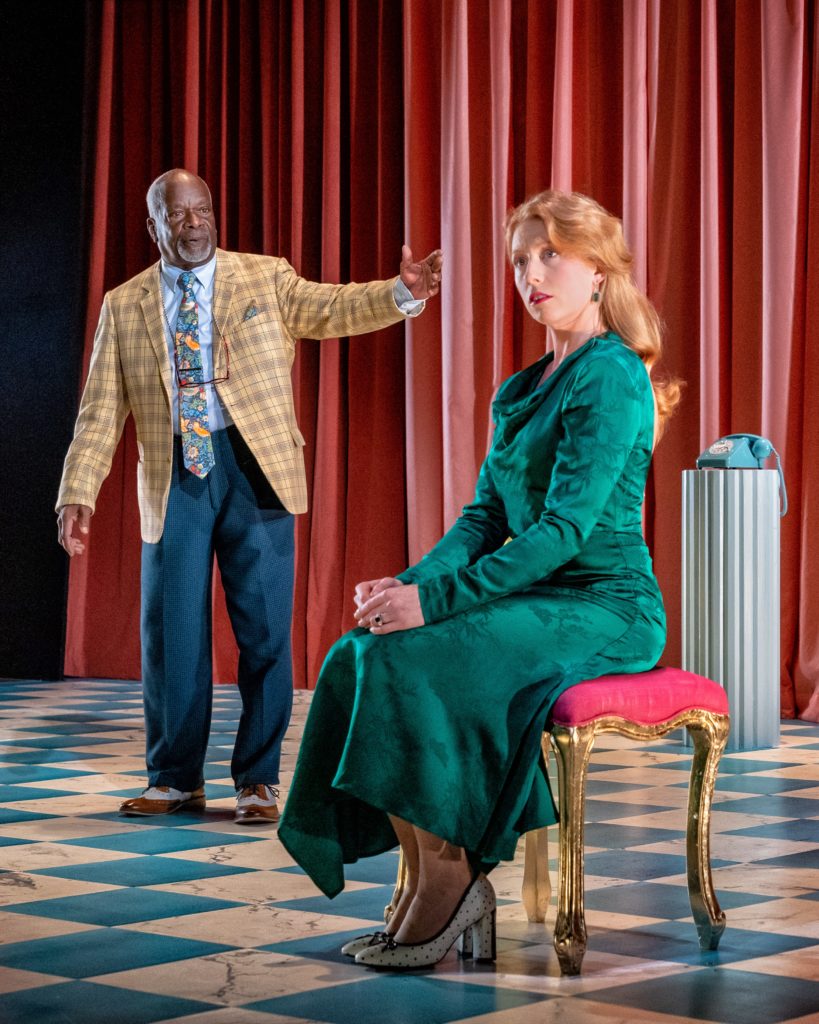
Will today’s audiences be scandalised by The School For Scandal?
“I am not too sure of that. But I am certain that within the world of the play a modern audience would empathise. Gossip and scandal to me is not the actual story; it’s the embellishments that happen in the retelling of the tale. We, a modern audience, really do understand the importance of ‘fact-checking’.”
What is the best bit of gossip you have heard about yourself?
“That I am an American actor. That I am married to an American woman from California and a British woman from Berkshire at the same time.”
How did a young actor born in Saint Lucia and living in London get cast in an American TV comedy, The Fresh Prince Of Bel-Air? Didn’t Patrick Stewart have something to do with it?
“Ah, The Fresh Prince Of Bel-Air. Well, I was touring the Universities of Southern California with an organisation called ACTER (Alliance for Creative Theatre and Research), which was created by Sir Patrick Stewart and Professor Homer Swander, of UC [University of California] Santa Barbara, under the auspices of the Royal Shakespeare Company.

“We were playing in Los Angeles in 1987 in a five-person production of Measure For Measure directed by Patrick Stewart. I played Angelo and three other roles. This flagship company was created for actors who had played leading roles in the plays of William Shakespeare, and our presence in Los Angeles, especially under the RSC banner, was a theatrical event. Anybody who was anybody came to the theatre over those days.
“Then, in 1990, Brandon Tarticoff (NBC) and Quincy Jones decided to produce the show The Fresh Prince Of Bel-Air. They needed an English butler and one of Afro-Caribbean heritage. Someone remembered me as Angelo in Measure For Measure; searched and located me, and then made me an offer, which I would have been foolish to refuse. So yes, Sir Patrick Stewart created the space for me. And for that, I am very grateful.”
Are you still recognised from The Fresh Prince Of Bel-Air and do you keep in touch with co-star Will Smith and the cast?
“Yes, I am very much recognised. From America to Zimbabwe. Wherever in the world I visit. We do all keep in touch and have a biannual lunch in Malibu, California. These reunions are fun.”
How much of a culture shock was it when you and your family moved from Saint Lucia in the Caribbean to Peckham in London in the mid-1950s?
“My father had been resident for a year before the family joined him. We arrived via Genoa, Italy, to Waterloo, London, in November. The fog and the cold temperature was a shock but the denuded trees with no leaves was astonishing. The paraffin heaters took a long time to get used to. Having to play cricket in the rain was boring.”
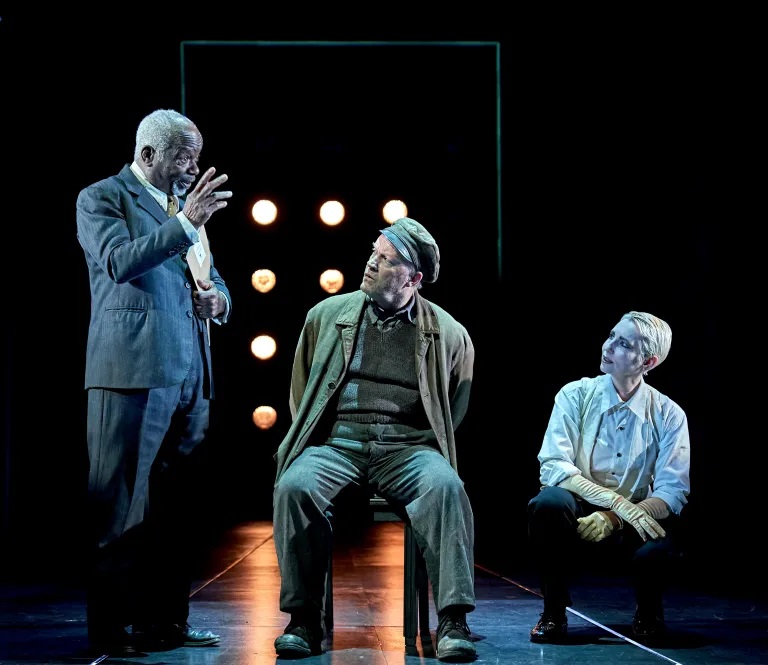
You trained as an electrical engineer, so how did the acting start?
“Purely by accident. There was a theatrical event in London at that time called The World Theatre Season, created by a man called Michael Saint-Denis. I went to a play by the American Negro Theatre. I believe the play was called Black New World. They were later to become the lauded Negro Ensemble. That was it for me. I found my road to Damascus. I said goodbye to electrical engineering.”
Your TV break came in Empire Road, a contemporary soap with an almost completely black cast, on the BBC in 1978. How difficult has it been to get diverse roles?
“In my opinion, I believe it is more difficult in these times. The loss of the repertory theatres and the advent of streaming has not been helpful. There’s nowhere to learn and practise the craftsmanship required.”
The last time you were appearing at York Theatre Royal in Hans Fallada’sAlone In Berlin, the theatre had to close mid-run because of the Covid epidemic. How much of a disappointment was that?
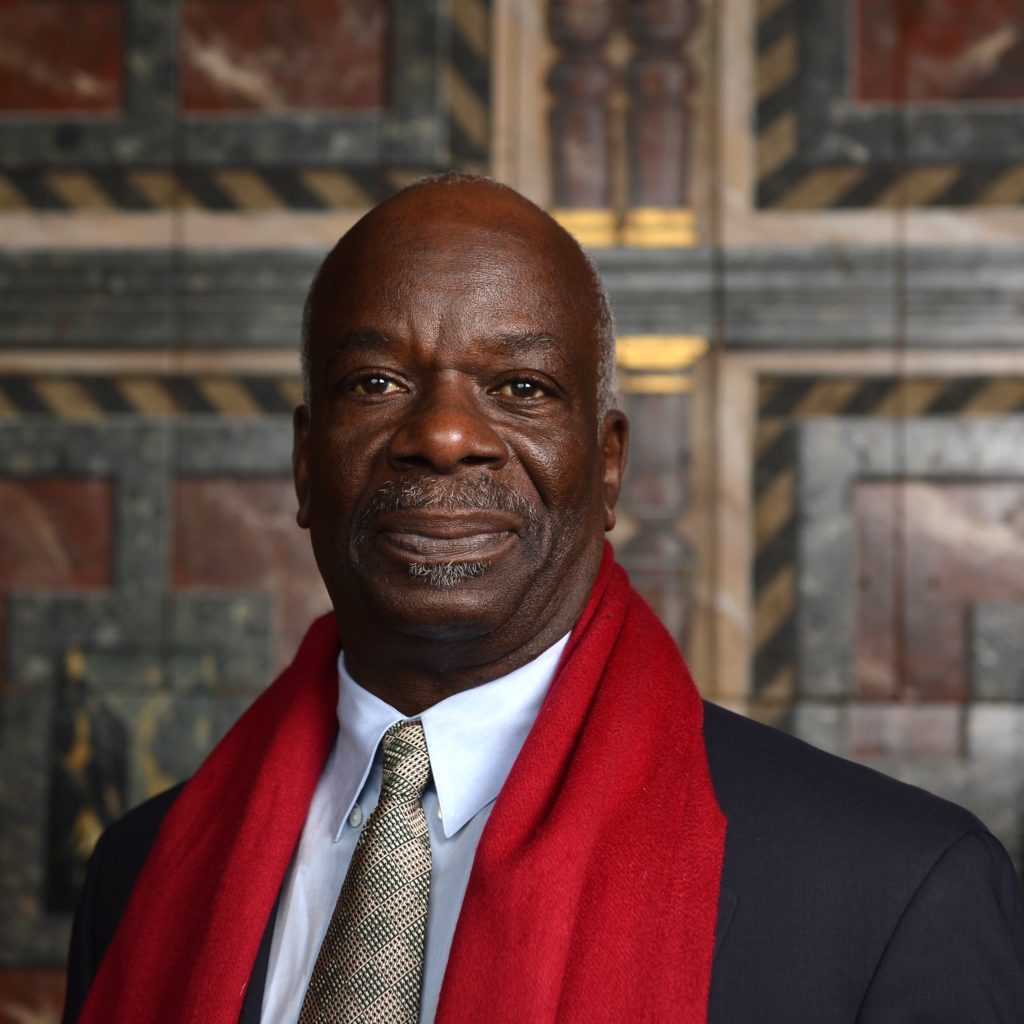
“A great disappointment. The role of Inspector Esherick, a detective in 1930s’ Berlin, was a dream of a role for a non-white actor. The director, James Dacre, had the imagination to cast me in that role. Very brave of him too. Such a talented director. In one move the diversity aspect was vanquished, for a while.
“And yes, the Covid pandemic did cut us off in our prime. Thankfully we have all survived and are in good health. Yet Alone In Berlin was a tremendous production and should have had a much longer life.”
You will next be seen on TV in Queenie, an adaptation of Candice Carly-Williams’s bestseller, on Channel 4. Who do you play?
“Grand Pa Wilfred. Of ‘the Windrush Generation’, he’s a lovely man who has embraced the situation in which he finds himself. One of the unsung heroes of the Caribbean migration to the United Kingdom.”
Tilted Wig in tandem with Malvern Theatres and Theatre by the Lake, Keswick, present The School For Scandal, York Theatre Royal, April 23 to 27, 7.30pm plus 2pm Thursday and 2.30pm Saturday matinees. Box office: 01904 623568 or yorktheatreroyal.co.uk.
A quartet of questions for director Seán Aydon

Are you doing your production in period or in a modernised setting?
“We wanted to allow our audience to get to as close to the heart of the play as possible and sometimes the baggage that goes with 18th century theatre, all the wigs and ruffles, can feel like a barrier.
“The actors of the 1770s would be wearing the height of fashion and we wanted our audiences to get a sense that these people were wealthy, stylish and take great care of their personal appearances.
“However, it didn’t feel right to set it in the modern day as the world of the play has very different rules to our own, particularly with regards to marriage as a financial agreement. We felt the middle of the 20th century would be a great place aesthetically as our audience could enjoy the vibrant colours and evocative textures, appreciating its style while knowing we are not in our 21st century world. It also allows us to play with some recognisable comedy tropes from the Fifties, including some rather brightly coloured telephones.”
Would you agree that Sheridan’s play is “one of the greatest comedies ever written”?
“I think it’s absolutely one of the best comedies ever written! You can see so many hallmarks of contemporary comedies and the great plays and films of modern times. It’s a classic sitcom plot with wicked wit, alongside slapstick, farce and some very silly physical comedy.
“Working on it, it seems easy to see its influence on so many of our favourite comedies from Blackadder to Noises Off.”
What differentiates this staging of The School For Scandal from past productions?
“This production really puts the relationship between the actors and the audience first. It is truly theatrical, an experience you can’t have on your sofa. At the same time, I think our new setting will make it feel very easy to relate to and understand from the very off while celebrating everything that makes this play exceptional.”
Will today’s audiences be scandalised by The School for Scandal?
“I don’t want to spoil anything, but those ghastly scandal-makers get what they deserve. In that respect it feels very contemporary; as a nation, we’re still pretty obsessed with the gossip columns!
“But I think our audiences will leave feeling rather warm and fuzzy – and with sore sides of course.”

